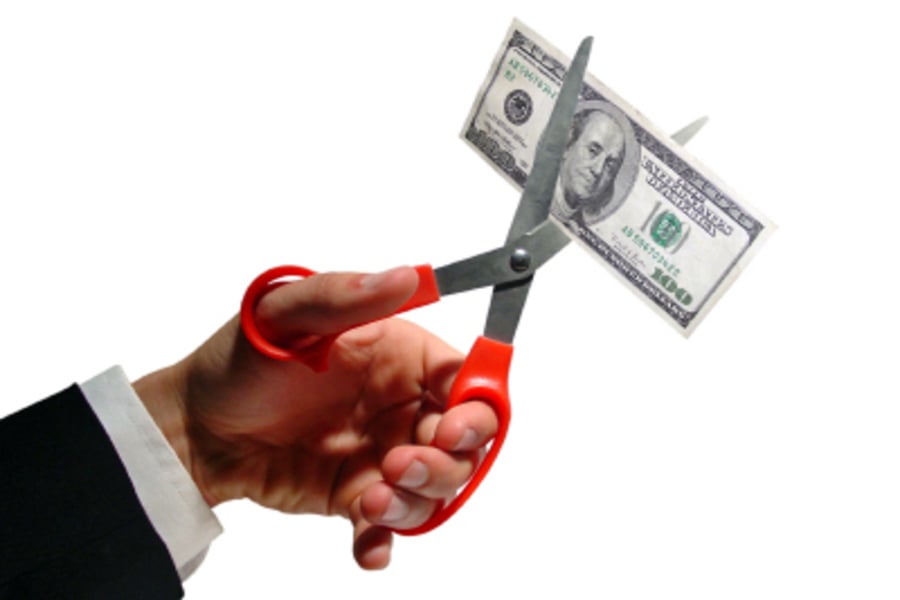

A change is gonna come to retirement saving.
Scratch that. It’s already here.
According to Schwab’s annual nationwide survey of 401(k) plan participants, 79% of workers are changing their saving and spending habits because of inflation, while 44% have altered their 401(k) investments.
Workers are cutting the number of purchases they make (34%), buying cheaper products (32%), and paying off debt more slowly (21%), according to Schwab’s study. Even with the belt tightening, workers are still saving less (33%) and spending more in general (30%) due to rising costs. The study shows them saving less for emergencies (20%), investing less outside their 401(k)s (18%) and contributing less to their 401(k)s (15%).
Specific to retirement, almost one quarter of workers say they plan to retire later due to the pandemic. Furthermore, one third of plan participants do not know how long their savings are likely to last in retirement, and the two thirds who offered an estimate say they expect their retirement savings to last 23 years on average.
“Workers have been through a lot over the past two years and it’s only natural that recent economic and geopolitical turbulence has continued to fuel financial concerns,” said Catherine Golladay, head of Schwab Workplace Financial Services. “While plan participants can’t control inflation or the markets, the good news is they are taking steps to manage their finances with an eye to the future.”
“When advising my clients, I try to understand their cash flow needs as best as possible. I use a baseline for cash flow management of 50% non-discretionary, 30% on discretionary expenditures and 20% on investment and savings. I then use a financial planning software to illustrate what the consequences would be if the clients stopped or lowered the savings contributions to their investment accounts over the long run. Ultimately, when prices pick up like we are seeing, I ask clients to take a closer look at their discretionary spending first to find ways to be most efficient and discover any room to cut back on like, a $6-a-day on coffee habit first, before deciding to cut back on savings and investing,” said Anthony Nardi, financial adviser at Kingswood US.
Despite the spike in inflation, workers believe they’ll need to save an average of $1.7 million for retirement, down from $1.9 million reported in last year’s survey, according to Schwab’s study. Furthermore, under half (47%) of respondents feel they are very likely to reach their retirement savings goal. They expect the 401(k) to be their primary financial resource in retirement, providing 37% of income, followed by Social Security (17% of income).
Regrettably, the study showed that financial strain continues to take a toll on mental health. Only 15% of employees say they have not been under financial stress, and more than a quarter of respondents (26%) say stress about their financial situation has impacted their ability to do their job in the past year, on par with last year’s survey findings.
“Many workers say their employers have helped them manage financial stress in the past year,” said Schwab’s Golladay. “With talent management top of mind for so many employers, demonstrating support for employees through tough times plays a key role in both loyalty and recruitment.”
On the bright side, the majority of employers (60%) took action to help workers manage financial stress in the form of increased pay (32%), increased 401(k) match (23%), and additional bonus (20%). Some also decreased hours to allow for better work-life balance (11%), according to the study.
“To many individual investors, the world feels very uncertain right now, and uncertainty can be scary. That fear can drive poor decisions. Changing spending habits to be more conservative and saving money is not necessarily a poor decision. However, clients should be working with a professional adviser to help them make better investment decisions based on their personalized plan and goals instead of being driven by fear,” said E. Todd Rebich, president, Rebich Investments at Stifel Independent Advisors.

A new proposal could end the ban on promoting client reviews in states like California and Connecticut, giving state-registered advisors a level playing field with their SEC-registered peers.

Morningstar research data show improved retirement trajectories for self-directors and allocators placed in managed accounts.

Some in the industry say that more UBS financial advisors this year will be heading for the exits.

The Wall Street giant has blasted data middlemen as digital freeloaders, but tech firms and consumer advocates are pushing back.

Research reveals a 4% year-on-year increase in expenses that one in five Americans, including one-quarter of Gen Xers, say they have not planned for.
Orion's Tom Wilson on delivering coordinated, high-touch service in a world where returns alone no longer set you apart.
Barely a decade old, registered index-linked annuities have quickly surged in popularity, thanks to their unique blend of protection and growth potential—an appealing option for investors looking to chart a steadier course through today's choppy market waters, says Myles Lambert, Brighthouse Financial.
